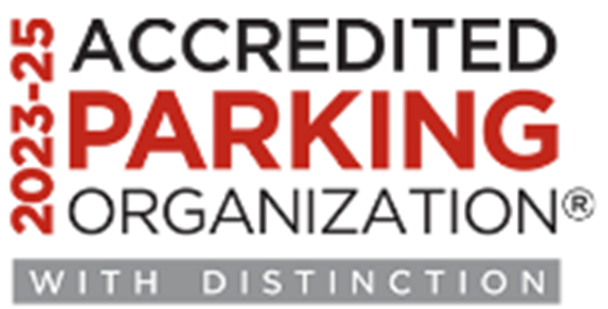By Doug Hardesty | 2.5 min. read
Why Dematerialize?
Dematerialization allows parking asset owners and administrators to reduce reliance on physical resources while maintaining a quality customer experience. In most cases, dematerialization allows the customer experience to be improved; as technology now permeates most aspects of our lives, service providers across all industries are under pressure to offer digital solutions and extended connectivity.
Here are five parking resources you can dematerialize today:
1. Physical vs. Digital Tickets
Moving away from physical tickets, hanging permits, and decals towards a digital solution reduces paper and plastic consumption. In addition, some digital solutions facilitate end-to-end connectivity, supporting wider mobility trends such as Mobility-as-a-Service and multimodal commuting.
From a user experience perspective, an app-based digital solution delivers the ease of instant validation, the convenience of multiple payment options, and the ability to pay for and extend parking in a few taps, sparing the drudgery of manual ticket renewal.
2. Print vs. Digital Marketing
Google Ads and listings on popular classified advertising websites such as Kijiji and Craigslist enable parking operators to streamline their print marketing efforts, producing only the necessary number of flyers, postcards, and brochures.
Though print marketing is undeniably an effective and worthwhile channel for building consumer awareness, a multichannel approach enables parking asset owners to reduce their print marketing costs to only what is truly productive. Print marketing pieces produced with recycled materials and eco-friendly, soy-based ink also reduce unintentional waste.
3. Mail vs. Email Invoicing
Email provides a convenient, reliable, cost-effective, and eco-friendly alternative to sending customers physical mail. When coupled with an online monthly parking management system, email also enables consumers to manage their parking needs quickly and conveniently wherever they are.
Last year, Impark phased out paper correspondence with monthly parkers in favor of email.
4. Mandatory vs. Optional Payment Receipts
If your operating system doesn’t require receipts as proof of payment, consider empowering customers with optional printing in lieu of automatic printing. This reduces unnecessary waste, heightens customer convenience, and will inevitably reduce the amount of paper discarded in and around your facility.
5. Lead vs. Solar Meter Batteries
Where possible, choose meters powered by rechargeable solar batteries to eliminate harmful lead batteries and costly electricity usage.
Some parking administrators believe solar meters won’t work in regions with heavy snowfall and low sunlight. However, with careful equipment selection and the right solar panel angles and operating plan, it may be possible. Ask an experienced parking management company like Impark if there’s a solar meter solution that could work for you.
Conclusion
There are a number of resources that can help parking asset owners take a less material approach to their day-to-day operations and cut costs by up to 25%, according to Parksmart. The most valuable, however, will always be a partnership with a parking management company invested in continuous operational improvement as dictated by the three Ps: people, planet, and profits.
Impark has collaborated with clients across North America over the years to develop sustainable, environmentally sound parking operations of which they can be proud. Contact us today to see how we can drive sustainable success at your site.
Doug Hardesty is Impark’s director of strategic accounts in Portland, Oregon. Email him at dhardesty@citycenterparking.com.


